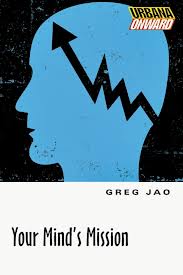One of my very dear friends, a leader and author I respect very much, is Steve Garber, author of Fabric of Faithfulness: Weaving Together Belief and Behavior (IVP; $16.00) an eloquent, serious, mature work, about how to keep a radical, wholistic faith alive beyond the idealism of young adulthood and over the longer haul of one’s life. In recent years Steve has called together a team of people to work together in what he calls the Washington Institute on Faith, Vocation, and Culture. He has been working with authors like Amy Sherman — Steve has a great afterword in her Kingdom Calling: Vocational Stewardship for the Common Good (IVP; $16.00 ) and Tom Nelson, who wrote Work Matters: Connecting Sunday Worship to Monday Work (Crossway; $15.99) and many other good folks. They help churches, seminaries, colleges, and para-church groups equip ordinary folks take up their callings in the world, with a sense that vocation is “essential, not incidental, to the missio dei.”
I was delighted when he asked me to write a piece for their website on the relationship between reading and the resurrection. I suspect he liked the alliteration, but he also knows that, as I try to spell out below, the cross and resurrection have vast, all-of-life implications. In many ways, this is the raison d’etre for our bookstore, to provide resources as we talk about these things.
So, for this Easter BookNotes post, I’d like to share the piece which I wrote for the Washington Institute, which they graciously published last week. First I spell out the biggest picture I can of the implications of redemption — think N.T. Wright’s Surprised by Hope: Rethinking Heaven, the Resurrection, and the Mission of the Church (HarperOne) or Al Wolter’s Creation Regained: The Biblical Basis for a Reformational Worldview (Eerdmans) or even the recent, profound work of James K.A. Smith Desiring the Kingdom and Imagining the Kingdom (Baker Academic.) Nearer the end of my essay, I mention the need for what I call “resurrectionary research” and suggest a strategic plan of resurrectionary reading groups. I cite one small booklet, one that in very helpful ways reminds us of this missional vision of being life-long learners, and gives some guidelines for developing the mind of Christ and how to use books as tools to help be better fit for God’s Kingdom in this post-Chrisitan culture. The book is Your Minds Mission by Greg Jao (IVP; $4.00.) Now is a prefect time to read it. Let me tell you why.
Our offer to give you one for free is explained at the end. Enjoy.
![]() Poland, 1984. “Christ is risen!” As the cry went out, the crowd of
Poland, 1984. “Christ is risen!” As the cry went out, the crowd of
mostly Catholic trade unionists shouted back with confidence “He is
risen indeed!” Not unusual for a resurrection service, the cadence of
the call and response echoing centuries of proclamation and hope. Yet,
as this crowd understood, such public proclamation was pregnant with
possibility — revolutionary, even. Soon, the dictatorial regime of
communist Poland fell to non-violent protestors, Solidarity workers,
alternative civic organizations, all swarming the streets inspired by
the hope of the gospel, the truth of Christ’s goodness unleashed in the
world. Many of those history-makers understood the vast implications of
Christ’s bursting forth from the empty tomb. We might borrow an image
from musician Bruce Cockburn’s Santiago Dawn, which tells of the
Christian hope that drove peaceful protestors to resist the junta in
peaceful protestors to resist the junta in
1980’s Chile, the people “rising like grass through cement.” Indeed, in
every hemisphere and continent the good news of Christ’s resurrection
has supplied courage for those resisting injustice.
For many the resurrection is a vindication of the belief that through
Christ and his cross, God forgives our sins and we are reconciled with
Him. This is gloriously true! Yet, we might ponder these brave
revolutionaries resisting totalitarianism, inspired by Easter; why did
their belief in Christ’s resurrection cause them to take on dictators?
The answer is endlessly provocative: they realized that Christ’s
resurrection is more than a final touch on the process that assures us
of salvation but also a socio-political event. The Roman regime had
locked Christ in his tomb, secured with a draconian royal seal and armed
guards. Easter’s uprising broke the Imperial seal and in doing so
broke the power of all repressive forces.
 This aspect of the Easter morning narrative includes vivid
This aspect of the Easter morning narrative includes vivid
anti-empire imagery, suggesting that Christ’s sacrificial death
accomplished more than the forgiveness of solitary sins. The gospel’s
implications are broader: Christ does more than show mercy, but also
transforms all of life. His resurrection revokes the power of personal sin and
systemic evil, inner disorder and corporate dysfunction. Christ is
victorious over death as it is writ large over a cursed creation. Colossians
2:15 exclaims that Christ has disarmed even the “principalities and powers”
by triumphing over them. Romans 8 reminds us that the entire creation has
been groaning, oppressed. The visionary of Revelation promises “all
things new” (the “all things” an echo of the early praise chorus of
Colossians 1.) A core New Testament conviction concerning the meaning
of Christ’s bodily resurrection is that Christ rules over this material
world, across all aspects of life, in every sphere of culture, and that
His new regime is coming “On Earth as it is in Heaven.”
The resurrection is the central reality of human history, the truest
truth that upsets idols and ugliness, defeats disorder and disaster.
This means that in the living Christ there can be a restoration of
order, rightness, shalom. God’s Kingdom is best understood as a
renewal of the good but fallen creation. Christ is King of His
creation, and those united in His death, resurrection and reign are
called to live into this shalom. The distorted ways of the broken
culture are replaced, as we – like grass through cement – bring forth
healing examples of new life. From sustainable economics to meaningful
aesthetics, from dignified labor to trusting families, we imagine and
then work to create hospitable neighborhoods, holistic health care
systems, wise schools, responsible engineering; we explore all the
implications of the resurrected life in a creation that is being
restored. The deathly Imperial seal lays broken, hurt is healed, God’s
life-giving Spirit is loose in the world, ambassadors of His holy rescue
plan scattered like salt, like leaven, like light.
Ahh, but here is the rub. To announce socially-constructive,
culturally-relevant, Biblically-directed new life, we must necessarily
ask what it looks like to embody this great good news. Christ’s victory
extends “far as the curse is found” (as we sang in promissory hope
during Christmastide) but what in the world do we do about it?
One of the answers–besides gathering regularly to announce through
Word and sacrament the truth of Death’s defeat in Christ’s
resurrection–is to read, and to read seriously.
 If
If
we are to do more than be “hearers” of the resurrection news, but are
to embody it as good citizens of God’s movement, we must unlearn a lot
of the old ways and relearn even more. Our way of life in the world is
informed considerably by the ideas that we hold, which is why the Bible
calls for the “renewal of our minds.” We are formed as new creatures by
Word and worship, but also by study. If Christ is bringing newness to
all of life, then we must study all of life. Christian people, God’s
vanguard of newness, must think well about “every square inch” of our
lives, and should read and learn and talk about it all. Where should we
shop? What parenting styles might we embrace? What do we think about
gender assumptions, how has racism distorted our attitudes and
relationships, can we possibly have Christ-like holiness amidst
sexualized media? What sort of entertainments are most renewing? How do
we fruitfully embrace technology, with whom should we live, for whom
should we vote, how do we think about are careers and callings?
If Christ is risen and brings renewal to all of life, and we are to be agents of reconciliation in all of life – well, we’ve got work to do.
The printed page has long been a tool of the trade for those wanting
to learn. Study has long been considered a spiritual discipline for
been considered a spiritual discipline for
those wanting to be formed into the ways of Christ. Reading widely is
not only a mark of a learned person, but often of those who are the most
robust, the truest lovers of life. There is a reason that nearly every
book on leadership tells us to explore the world of books, to ask our
mentors what to read, to commit ourselves to more rigorous reading
habits.
Those of us who are swept up into Christ’s agenda of bringing newness
might do well to step back from public proposals and pontificating,
instead committing ourselves to a season of what might be called
resurrectionary research. Given that Christ is risen, what should we
think about the nature of our culture (its worst idols and greatest
dysfunctions; its best graces and most normative strengths?) What are
the most pressing problems in our world, and what insights might come
from the creation-regained worldview brought by Jesus the risen King?
Our habits of heart and the subsequent social architecture of our land
must be transformed – what might the resurrection mean for that? All of
this will demand considerable and concentrated thought. And we will have
to be intentionally standing on the shoulders – by that, I mean reading
the books of – those who have come before. Can we be agents of
reformation by thinking deeply, offering well-informed glimpses of
resurrection life?
Reading groups, lending libraries, study circles — on-line and in
living rooms — will be important as we take up the task of reformulating
important as we take up the task of reformulating
our ideas and subsequent practices, discerning what it means to be
agents of resurrected newness. We will have to think of learning as part
of our mission. Greg Jao has given us a phrase that helps us with
this. In a small book with big ideas he invites us to think about Your Mind’s Mission (IVP.) He writes,
Christian intellectual stewardship inevitably advances
God’s redemptive mission, as well as the acquisition of knowledge. When
Christians engage a field of study’s presuppositions and practices from
a perspective shaped by the scriptural narrative and a biblical
worldview, we reclaim the contested terrain of the academy in the same
way that a gospel invitation reclaims souls of sinners…
Speaking to those with missions within higher education, he continues,
The university is not a polluted environment from which
students and faculty must be rescued. Instead, the university is a
valuable ecosystem of ideas and ideals, values and visions, skills and
resources that must be renewed. We will beat swords into plowshares by
consecrating ideas and art, technology and techniques toward human
flourishing for the glory of God.
Of course, this is true for all of us, no matter where we find
ourselves, or what vocations we have. As John Stott put it decades ago,
“your mind matters.”
If we do not ground our Christian proposals in studied conversation,
shaped by habits of reading widely and deeply, we will not have
substantive contributions to make, our ideas will be thin, our proposals
less than adequately wise or fruitful. For the full force of
resurrection power to shake the world we will need to do more than shout
out the truth of the victory. We will have to think through its
implications, reading widely and deeply, unlearning and learning much,
praying and working for the mind of Christ, so that we offer truly good
news of healing and hope to the watching world.
There are implications to Resurrection. One of them is that we must be readers.
BOOK
OFFER
Your Mind’s Mission
(Greg Jao)
WITH THE PURCHASE OF ANY OTHER BOOK
PLEASE USE PROMO CODE REZ READING
THIS WEEK ONLY
while supplies last
Offer Expires April 5, 2013
order here
takes you to the secure Hearts & Minds order form page
just tell us what you want
just type the REZ READING promo code in there
inquire here
if you have questions or need more information
just ask us what you want to know
Hearts & Minds 234 East Main Street Dallastown, PA 17313 717-246-3333
read@heartsandmindsbooks.com
